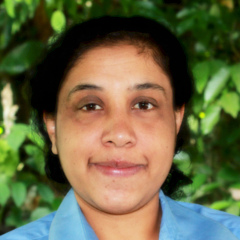ABC of Civil Services | Is age a factor in determining one's success?

Mail This Article
As the preliminary examination got postponed, many of my students were worried about how to utilise the time properly. One person was talking about getting bored after too many rounds of revision. This applies to many candidates who are into their third or fourth attempt as they are familiar with the syllabus as well as the process. The first timers were actually relieved they were getting extra time. This difference in attitude was interesting and it made me think about the larger question about whether we should reduce the age limit and number of attempts regarding civil service examination.
When the Britishers introduced the Indian Civil Service, the age limit was kept low and this in fact reduced the chances of Indians. Only those aristocratic and bright men had any chance of making it to the coveted job. After Independence also, the service was quite elitist for a long period of time and the kind of people who got into it remained more or less the same. The situation changed in the last two decades when the growth of private sector and global opportunities altered the preferences of urban elites. The civil service is no longer appealing to the so-called people born with a silver spoon in their mouth. It became a dream career for small town people, particularly for those whose parents were in the lower level of government jobs. Also, the average age of the new entrants to civil service increased.
Unhappy lot
Many old school bureaucrats are not happy about these changes. They argue that the younger persons will be easily trainable and more eager to pursue new thoughts and ideas. They say that an older person in service will have a lot of pre-set ideas and he/she will not bring in that breath of fresh air which is very much needed in bureaucracy. Also, one may deduce that if a candidate takes more attempts to clear, he/she has less calibre compared to someone who cracks it in the very first attempt. People often believe that the interview board also will show favouritism towards younger candidates for all the above-mentioned reasons.
So, is it true that the age plays an important role in determining one’s chances to pass the civil service examination? Well, let us detach the age factor from the above arguments and make a profile of a candidate who is preferred by the government. The future officers should be eager to learn, trainable and have some fresh and original ideas. No confusion there. But can we conclude that a younger person will have these qualities and an older person will be lacking these traits? My answer will be an emphatic no.
There are precious few who clear this examination in their very first attempt because of the complex and dynamic nature of the selection process. Most of the candidates improve their performance in the subsequent attempts. Many a time like this year, the top three rankers were people already in the central services and who wanted to try for Indian Administrative Service. With them they bring the experience of working in government which can be quite useful. Similarly, I have seen many people who are perseverant and attempt multiple times to get in. Their determination and ability to correct and improve themselves in each attempt is quite laudable. So, it is this attitude which will be rewarded even though it takes a bit of time.
Plenty of positives
I personally know people who were toppers in their first attempt and people who took more than five attempts to achieve the same. But that positive attitude to improve oneself is a common trait I was able to see in all these people. None of them are complacent and they always ask suggestions to improve. Eventually that attitude makes them an asset to the system. So, it is ultimately about whether you show fatigue or freshness while approaching this examination. If you show eagerness to pick up new things while preparing as well as during personality test, age becomes a mere number and nobody is going to deny you a chance to be part of civil service.
(Remya Roshni, ex-IPS, is a civil service trainer and author of "How to Ace Civil Service Interviews”.)


